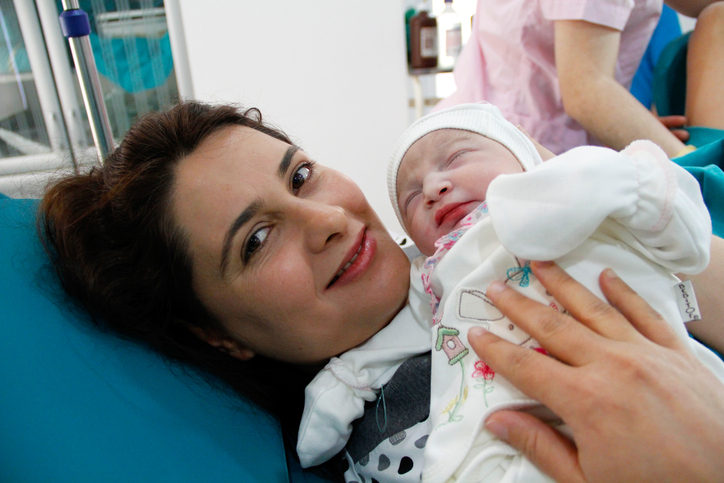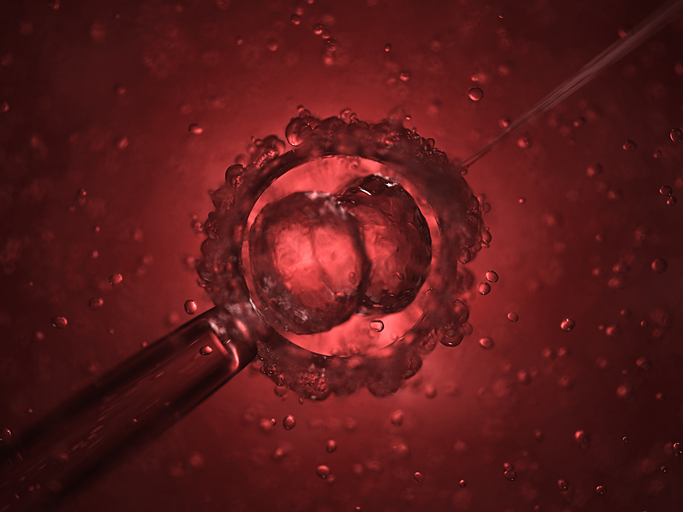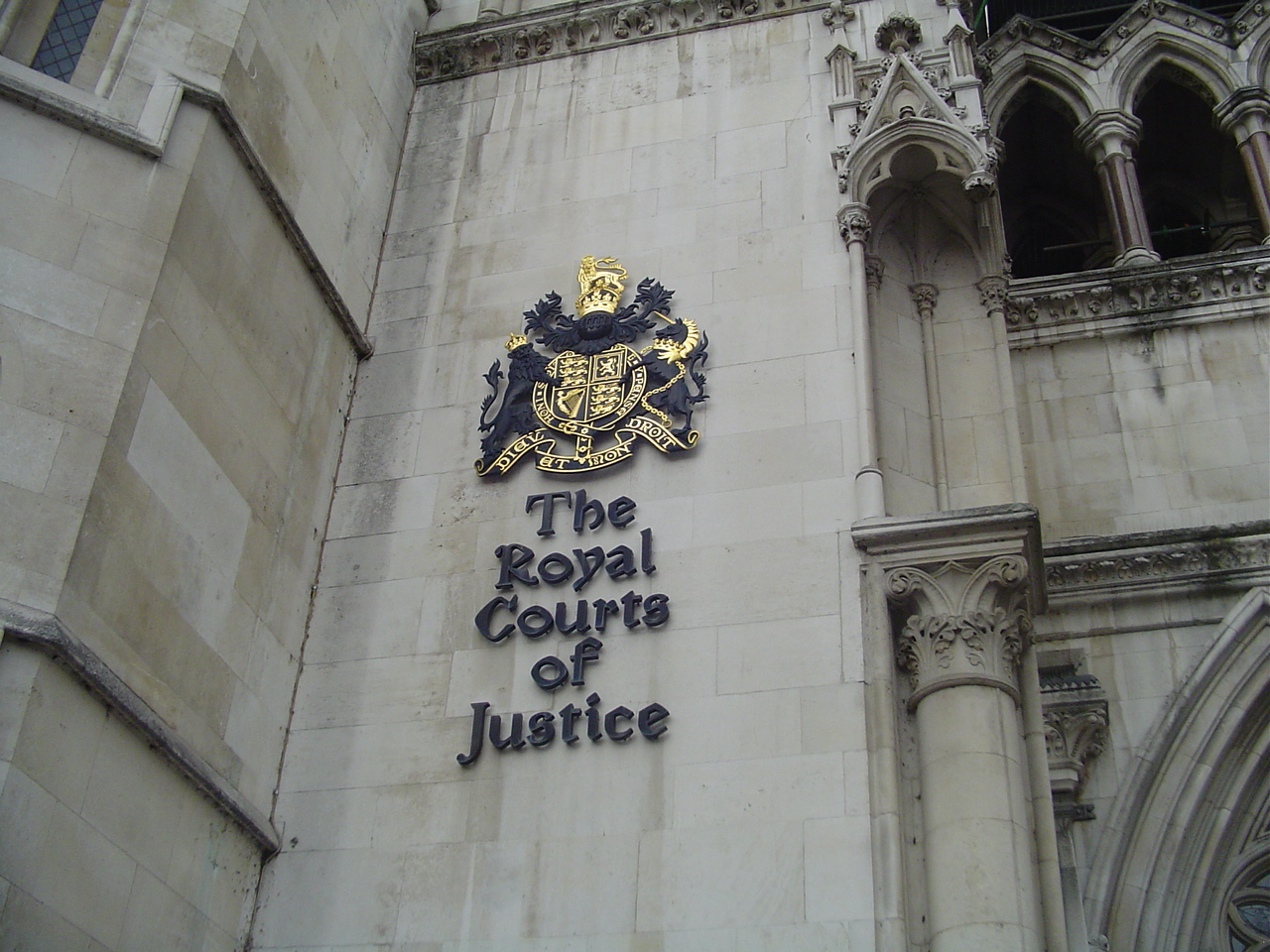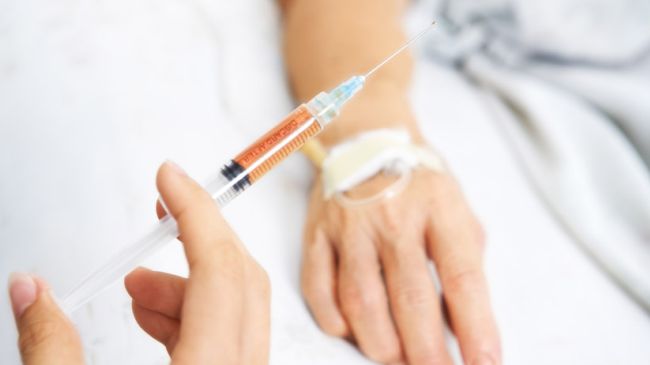
Lone parents forced to take up work by changes to the One Parent Family Payment actually suffered a fall in income, a new study shows. The report, from the Economic and Social Research Institute (ESRI), finds the changes, which were introduced by former Tánaiste Joan Burton in 2011, resulted in employed lone parents who had been in receipt of the payment losing 1.9 per cent of income while their non-employed counterparts saw no change. The drop in income by those who went into paid employment was due to the cost of childcare and the low wage, part-time jobs they were working.
About 99 per cent of recipients of the payment are mothers. In Ireland, in 2016, 17.6 per cent of children lived with a single parent – just above the OECD average of 17.1 per cent. The report also said that Ireland does stand out in terms of poverty and deprivation experienced by these lone parents. “Persistent poverty . . . was 26 percentage points higher among lone parents than for other adults compared to an average gap of between five and 20 points evident in other countries. This indicates that poverty among lone parents in Ireland appears more endemic and not solely due to transient shocks such as short-term loss of employment.”

Church leaders in Nigeria have said that Christians are experiencing “pure genocide” as 6,000 people, mostly women and children, have been murdered by Fulani extremists since January.
“What is happening in Plateau state and other select states in Nigeria is pure genocide and must be stopped immediately,” said the Christian Association of Nigeria in a press release last week.
The church leaders said that they are particularly worried at the widespread insecurity in the country where “wanton attacks and killings by armed Fulani herdsmen, bandits and terrorists have been taking place on a daily basis in our communities unchallenged”. Despite huge investments in the security agencies, they say the perpetrators are being deliberately allowed to go scot free.
“It is even more worrisome that these huge numbers of over 6000 deaths in 2018 alone have been recorded in various attacks, especially in the northern and middle belt states”, adding, “There is no doubt that the sole purpose of these attacks is aimed at ethnic cleansing, land grabbing and forceful ejection of the Christian natives from their ancestral land and heritage.”
The press release also pleaded with the international community, as well as the United Nations, to intervene in the Fulani attacks, fearing they might spread to other countries as well.

The latest HSE figures for births in the country’s 19 maternity units estimate 61,902 babies were born last year. This figure represents a decline of 1,844 since 2016 and a precipitous drop from a high of 75,554 in 2009. The annual birth rate stands at 12.9 per 1,000 of population, compared to 16.1 per 1,000 population in 2007.
The only two maternity units to show an increase in births were in Portlaoise Hospital and Mullingar Hospital. The largest fall in births was in Mayo, where the number of babies born last year dropped to 1,547, down from 1,650 in 2016. Even in Dublin a sharp decline was recorded with births in the National Maternity Hospital in Holles Street down by 5.3pc.

A healthcare worker was arrested on Tuesday morning and taken into custody by police in the UK on suspicion of murdering eight babies and attempting to kill a further six. This is the first police investigation into child deaths in hospitals in nearly 30 years.
Police launched an investigation into the deaths of 15 babies and six non-fatal collapses at the women and children’s unit of the Countess of Chester hospital between June 2015 and June 2016. The force said on Tuesday the inquiry had widened to cover the deaths of 17 babies and 15 non-fatal collapses between March 2015 and July 2016.
Prosecutions of healthcare workers are rare and frequently difficult. Barrister Anthony Haycroft told the Guardian newspaper proving intent was crucial. In the Countess of Chester case, he said the police “will be looking first of all at the intent and if there was an intention to kill, it is murder. If it is a dangerous act irrespective of any intent, it is gross negligence manslaughter. In both cases, there has to be causation – for the actual death there must be a connection between the medical act and the death.”

A fertility clinic operating in Ireland will offer a new service styled as ‘remote’ IVF allowing anonymous eggs from abroad to be inseminated in Spain with sperm from a client in Ireland and the resulting embryo will be flown back to Ireland to be implanted in a woman here. The scheme would allow people to skirt forthcoming laws here that will make anonymous egg donation illegal while also saving women the inconvenience of having to travel abroad for an embryo implantation.
The Institut Marquès, which has clinics in Dublin and Clane, Co Kildare, said “cross border reproductive treatment” could be stressful for patients. With their new programme, “it’s the embryo that travels. This method offers a safe, efficient and comfortable option to carry out treatment in the patient’s country of origin”.
The clinic said the semen sample of the male partner is frozen at the country of origin such as Ireland and sent to a laboratory in Barcelona, where IVF is carried out with the donor’s fresh eggs. Once fertilised, embryos are vitrified (frozen) on their fifth day of development and sent back to Ireland so embryo transfer can be carried out by the patient’s own doctor in her country of origin.
Prof Deirdre Madden, an expert in medical ethics at UCC, said a lot of countries had egg shortages as generating them involved an invasive procedure including use of ovary stimulation drugs, and was not as easy as sperm donation. In relation to Ireland, “it’s less about the law and more about getting eggs. There is nothing preventing having the egg procedure done here”, she said.

Girls are banned from wearing skirts at 40 secondary schools across England as schools opt for gender-neutral uniforms to cater for transgender pupils and to address concerns about female modesty.
The head of one such school said: “The reason for the uniform change initially is about equality, and decency. Our students will all now wear the same uniform. It is a much more decent uniform and it is far less likely to lead to abuse. It is a gender neutral uniform, and we’ve thought carefully about that, ensuring that is was gender neutral.”
He added: “We have transgender students in the school and we have an increasing number of students who are at that crossroads of understanding around their gender. So this uniform removes the need for anyone to make a decision about whether they wear a so-called male or female uniform.”
At another school skirts were deemed “undignified and embarrassing” for staff and visitors when girls sit on the floor for assembly and in drama classes. In Bradford, numerous schools with a high proportion of Muslim pupils do not allow skirts on modesty grounds. Bans are also common in Leeds and Grimsby. In Ipswich, eight secondary schools prohibit them, which means the majority of girls attend “trouser-only” schools.
Pupils at one school are resisting the imposition of the trousers-only policy arguing that a ban on skirts is “sexualising” pupils’ bodies. Its female pupils also argue that they feel more confident in skirts and forcing them into trousers could damage their mental health.
“If any teacher believes seeing a child’s leg is in any way ‘too sexual’,” states the petition, “they should be sacked immediately for gross misconduct.”

A terminally ill man in the UK does not have the right to an assisted suicide, the UK Court of Appeal has ruled. The man had asked the court to make assisted suicide legal where a person has less than six months left to live, still has the mental capacity to decide, and has made a “voluntary, clear, settled and informed” decision. The three judge panel led by Master of the Rolls Sir Terence Etherton said the court concluded it was not as well-placed as Parliament to determine the “necessity and proportionality of a blanket ban”. He also said the High Court had seen evidence Mr Conway’s proposed scheme was “inadequate to protect the weak and vulnerable”. It also failed to give enough weight to the “sanctity of life and to the scheme’s potential to undermine trust and confidence as between doctors and patients”, he added. The appeal was opposed by the Secretary of State for Justice, David Gauke, with Care Not Killing and Not Dead Yet UK also making submissions. Dr Peter Saunders, Campaign Director of Care Not Killing, described the decision as a sensible one. He said the UK’s “laws deter the exploitation, abuse and coercion of vulnerable people”, and it was now time for assisted suicide activists to “turn their attention instead to how we can secure equality of access to the very best health care for all”. He added: “The safest law is the one we already have – a complete ban on assisted suicide and euthanasia.”

A fiercely critical report into the practices of the Norwegian child protection agency, Barnevernet, has just been published by the Parliamentary Assembly of the Council of Europe (PACE)
The report criticized the frequency and nature of “emergency” interventions in Norway, the reasons for separating parents from their children, and the extremely short visitation times afforded to them. The Assembly made a number of recommendations to minimize disruption for children where an intervention was necessary, such as keeping care within the wider family unit wherever possible.
The Council of Europe report was prompted by the international outcry over the plight of a Christian couple, Ruth and Marius Bodnariu, had all five of their children taken away by Barnevernet in late 2015. The five Bodnariu children (including a three-month-old baby) were taken after an allegation was made about the parents using physical chastisement, which is not allowed in Norway. The taking of the children resulted in protests around the world. While the Bodnariu family was ultimately reunited and fled the country, many other families came forward with similar stories of unjustified intervention.

A heterosexual couple have won the right to enter a civil partnership after the UK Supreme Court ruled in their favour. The couple sued the State as legislation allows only same-sex couples engage in civil partnership. They claimed the government’s position was “incompatible with equality law” and the Supreme Court in London has now ruled they are being discriminated against. Their lawyer had told the Court they have “deep-rooted and genuine ideological objections to marriage” and were “not alone” in their views. Barrister Karon Monaghan QC said matrimony was “historically heteronormative and patriarchal” and the couple’s objections were “not frivolous”.
Since marriage was redefined in the UK, same-sex couples can choose whether to enter a civil partnership or to marry. But this has not been possible for opposite sex couples which led Ms Steinfeld and Mr Keidan to claim the law was discriminatory. They, and all other such couples, may now legally enter into a civil partnership instead of marriage.

A bill to make euthanasia legal in Spain is to be considered by the lower house of parliament in Madrid. Drafted by the governing Socialist Party (PSOE), the bill would make euthanasia a new personal right that would be available through Spain’s public healthcare system. It has the support of all the main parties except for the opposition Popular Party (PP).
If the bill becomes law, adults with a terminal illness and those with serious and chronic disabilities could request assisted suicide from the public healthcare system.
PP spokeswoman Pilar Cortés called it “a sad day.”
“To talk about euthanasia is to talk about failure, to admit a political, professional and medical defeat,” she said. Cortés considered it “a failure of society” that politics is incapable of “offering solutions other than dying.”
She also claimed that “given time, exceptional situations will turn into habitual situations” because it will be seen as “a cheaper solution” than palliative care. She said that in The Netherlands there are around 1,000 cases of involuntary euthanasia a year.